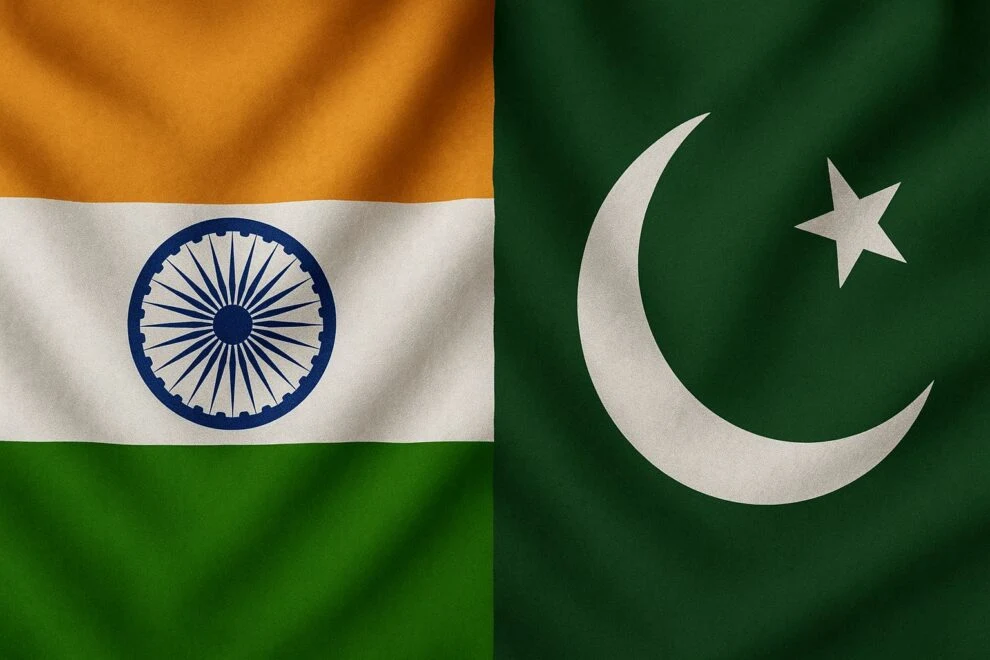Introduction: On May 5, 2025, the Kremlin urged India and Pakistan to de-escalate tensions following a deadly terrorist attack on April 22 in the Indian-administered Kashmir region. The attack, which killed 26 tourists in Pahalgam, has reignited a decades-old conflict, raising fears of a military standoff between the nuclear-armed neighbors. This article delves into the Kremlin’s plea, the geopolitical stakes, the historical roots of the Kashmir dispute, and offers a taste of Kashmiri culture with a traditional Rogan Josh recipe.
Kremlin’s Plea for De-escalation
Kremlin spokesman Dmitry Peskov expressed concern over the “tense atmosphere” along the India-Pakistan border, urging both nations to take steps to reduce hostilities. “We hope that the parties will be able to take measures (…) that will reduce tensions,” Peskov told reporters on May 5, 2025. The call comes as cross-border skirmishes along the Line of Control (LoC) in Kashmir have intensified, with gunfire reported for multiple nights. Reuters noted that Russia’s Foreign Minister Sergei Lavrov also offered mediation, emphasizing bilateral resolution per the 1972 Simla Agreement.
[](https://www.reuters.com/world/asia-pacific/russia-says-willing-help-resolve-india-pakistan-differences-over-kashmir-2025-05-04/)[](https://timesofindia.indiatimes.com/india/jammu-and-kashmir-pahalgam-terror-attack-live-updates-pakistan-terrorists-killed-tourist-pm-modi-amit-shah-nia-omar-abdullah-loc-tension-shehbaz-sharif-srinagar-raid/liveblog/120861012.cms)The Pahalgam Attack and Rising Tensions
The catalyst for the current crisis was a terrorist attack on April 22, 2025, in Pahalgam, a scenic tourist destination in Indian-administered Kashmir. Suspected militants, allegedly linked to The Resistance Front (TRF), a proxy of Pakistan-based Lashkar-e-Taiba, killed 26 people, mostly Hindu tourists, in the deadliest attack since the 2019 Pulwama strike. India accused Pakistan of orchestrating the attack, a claim Pakistan denies, labeling it a “false flag operation.” Since then, both nations have engaged in tit-for-tat measures, including visa cancellations, trade bans, and diplomatic expulsions. Pakistan’s test-firing of a ballistic missile on May 3 further escalated fears of conflict.
[](https://timesofindia.indiatimes.com/india/pahalgam-terror-attack-russias-lavrov-speaks-to-eam-jaishankar-amid-rising-tensions-with-pakistan/articleshow/120854075.cms)[](https://www.bbc.com/news/articles/cn4wk22vk4zo)[](https://www.pbs.org/newshour/world/pakistan-test-fires-ballistic-missile-amid-high-tensions-with-india-after-kashmir-gun-massacre)Geopolitical Context: The Kashmir Conflict’s Roots
Historical Fact: The Kashmir conflict traces back to the 1947 partition of British India, when the region’s Hindu ruler, Maharaja Hari Singh, chose to accede to India amid incursions by Pakistani-backed militias. This decision sparked the first Indo-Pakistani war, resulting in a divided Kashmir, with India and Pakistan each controlling parts but claiming the entire region. The dispute has fueled two wars, numerous skirmishes, and ongoing insurgency, with the LoC serving as a de facto border. The 1972 Simla Agreement, reaffirmed by Russia, emphasizes bilateral resolution, but mutual distrust persists, compounded by both nations’ nuclear capabilities.
[](https://www.nytimes.com/2025/05/05/world/asia/india-pakistan-kashmir-history.html)International Mediation Efforts
Beyond Russia, other nations have stepped in to urge restraint. Iran’s Foreign Minister Abbas Araghchi visited Pakistan on May 5, 2025, to mediate, marking the first such visit since the attack. The EU’s foreign policy chief, Kaja Kallas, also called for de-escalation, while the US urged Pakistan to cooperate in hunting down the militants. However, India insists on justice for the attack’s perpetrators, with External Affairs Minister S Jaishankar stressing accountability in talks with Russia’s Lavrov. Pakistan, meanwhile, has sought support from allies like China and Saudi Arabia to defuse tensions.
[](https://apnews.com/article/pakistan-tensions-india-iran-araghchi-92770117a93b72814c494834348b73b8)[](https://www.politico.eu/article/india-pakistan-pahalgam-kashmir-attack-tensions-eu-kaja-kallas/)[](https://www.yahoo.com/news/us-urges-restraint-kashmir-massacre-061401236.html)A Taste of Kashmir: Rogan Josh Recipe
Amid the conflict, Kashmir’s rich culinary heritage offers a glimpse of its cultural vibrancy. Rogan Josh, a fragrant lamb curry, is a staple of Kashmiri cuisine, known for its bold spices and vibrant red hue. Here’s a recipe to savor this iconic dish:
Ingredients:
- 2 lbs lamb shoulder, cubed
- 1 cup yogurt
- 2 onions, finely chopped
- 2 tbsp vegetable oil
- 2 tsp ginger paste
- 2 tsp garlic paste
- 1 tbsp Kashmiri red chili powder
- 1 tsp ground fennel
- 1 tsp ground cumin
- 1/2 tsp saffron strands (soaked in 2 tbsp warm milk)
- 4 green cardamom pods
- 2 cinnamon sticks
- Salt to taste
- Fresh cilantro for garnish
Instructions:
- Marinate: Mix lamb with yogurt, ginger paste, garlic paste, and salt. Refrigerate for 2 hours.
- Cook Base: Heat oil in a large pot, sauté onions until golden, then add cardamom, cinnamon, cumin, and fennel.
- Add Lamb: Add marinated lamb and chili powder, stirring for 5 minutes. Pour in 1 cup water, cover, and simmer for 1 hour until tender.
- Finish: Stir in saffron milk, cook for 10 minutes, and garnish with cilantro. Serve with rice or naan.
This aromatic dish reflects Kashmir’s culinary soul, perfect for sharing with loved ones.
Conclusion
The Kremlin’s call for de-escalation underscores the global stakes of the Kashmir conflict. As India and Pakistan navigate this crisis, the international community watches closely, hoping for peace in a region marked by decades of strife. Stay informed with Planet-Today.com for updates on this developing story.
Author: Planet-Today.com
Via AFP
